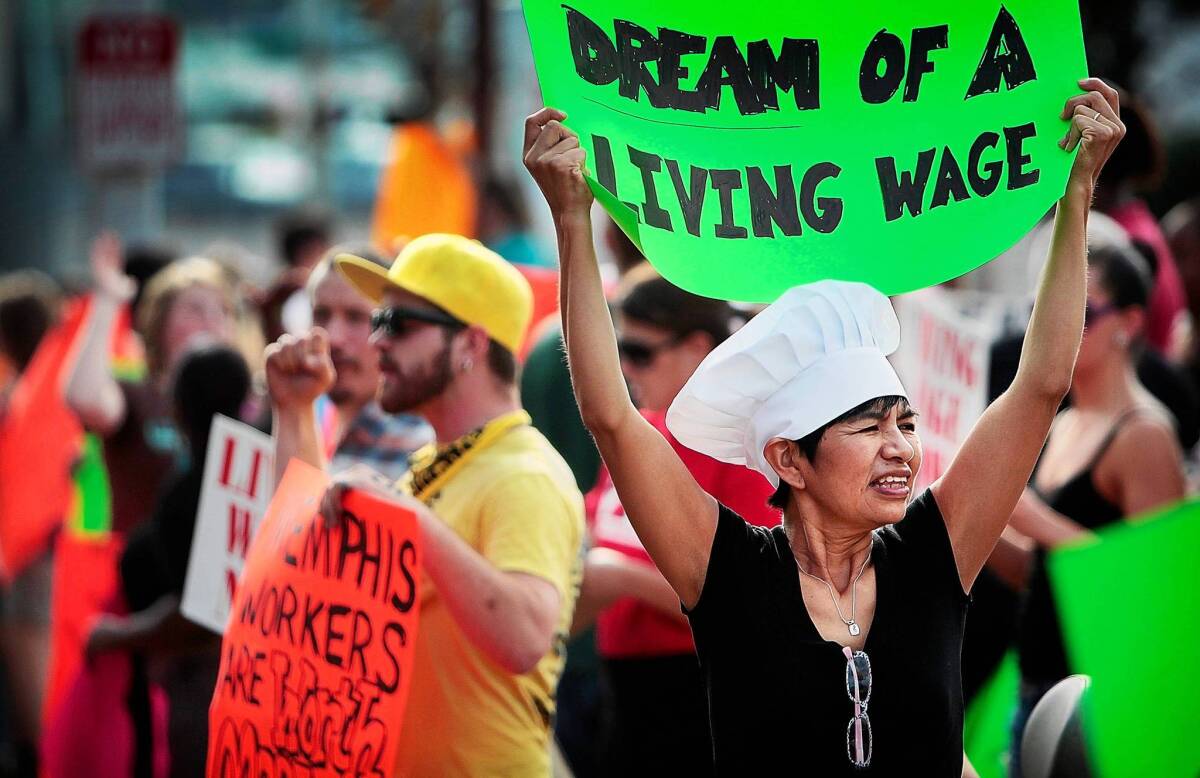Letters: Middle-class malaise

Re “Poof goes the middle class,” Opinion, Oct. 23
Thanks to Doyle McManus for his timely review of Tyler Cowen’s book, “Average Is Over.” The trends crippling the middle class that Cowen writes about have been in the making since the 1970s. It took the Great Recession to finally bring this research the recognition it deserves.
Americans today instinctively know that something is wrong, thus the high percentage who tell pollsters the country is going in the wrong direction. But I think few understand that their economic world has changed forever.
What is really needed now is a rebuilding of the middle-class labor force to educate and train (or retrain) workers for well-paying, non-exportable jobs such as nursing, plumbing and high-tech manufacturing. The German labor model may be worth exploring. In Germany, government, private business and labor unions collaborate in a nationwide apprentice training system.
Unfortunately, most U.S. politicians are stuck with the bromides of the past. Someone needs to tell Americans that the world economy has changed and they need to change with it. However, they are going to need lots of help; otherwise, “poof goes the middle class.”
Carl Martz
Redlands
We shouldn’t forget that this country’s once sizable middle class emerged under uniquely favorable circumstances.
Not long after World War II, our newfound affluence — which gave rise to the middle class — overshadowed that of other developed countries, where war had wreaked industrial devastation. In addition, our wealthier citizens were taxed heavily, which funded massive government investment in public infrastructure, thereby spurring prosperity for all.
These huge advantages eventually eroded as our economic competitors regained their industrial footing. Outsourcing, automation and tax cuts decimated our middle-class jobs.
Sustaining a middle class seems a lost cause. We’re left with the challenge of downsizing cherished but unrealistic expectations. As McManus suggests, that wouldn’t be easy even if Washington weren’t so dysfunctional.
The middle-class dream was nice while it lasted.
Betty Turner
Sherman Oaks
McManus paints a sobering picture of the future of the United States if current trends continue, pointing out that increasing inequality “leads to lower economic growth, more poverty, more fragile families and, as a result, less happiness.”
More important, great inequality poses a threat to the ideals and foundations of our democratic system.
A year before he died, President Franklin D. Roosevelt said, “The test of our progress is not whether we add more to the abundance of those who have much; it is whether we provide enough for those who have too little.” We have been here before.
Theodore Roosevelt warned us 113 years ago that “ruin in its worst form is inevitable if our national life brings us nothing better than swollen fortunes for the few and the triumph in both politics and business of a sordid and selfish materialism.”
We made the reforms necessary then for the country to prosper; we should do so again.
Jonathan Hubbell
Laguna Niguel
ALSO:
Mailbag: A streetcar undesired
Letters: Nobel laureate’s L.A. roots
Letters: Reaching out to North Korea
More to Read
A cure for the common opinion
Get thought-provoking perspectives with our weekly newsletter.
You may occasionally receive promotional content from the Los Angeles Times.






